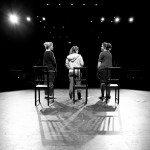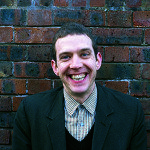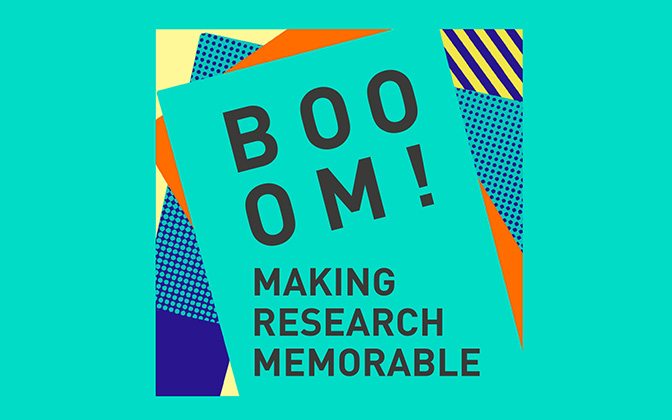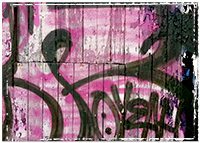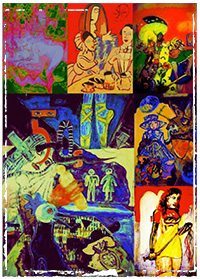BOOOM! Making Research Memorable
4 July, Parkside Building, BCU – free (bookable in advance)
What’s the most memorable presentation you’ve been to? Do you remember the argument that was made? What was it that made it remarkable?
Whether made for standing on stage or preferring the wings, we all have to present our research in public using only the power of our ideas, the shape of our language, the expression of our bodies, the imaginations of our listeners, and our abilities to be convincing. Not much to ask… If producing an original contribution to knowledge isn’t task enough, we also have to embody our research with a ‘living voice’ – a viva voce (the modern equivalent, ‘oral exam’, sounds like an unpleasant trip to the dentist). BOOOM! is an event hosted by BCU on behalf of Midlands 3 Cities combining workshops and demonstrations giving insights into how we can all help our ideas to leap off the page.
We’re not reinventing the bagel with this event, but we are returning to some of the principles of rhetoric, defined by Aristotle as the ability to identify the appropriate means of persuasion in a given situation. It’s worth reflecting for a moment that the arts of rhetoric were not only central to learning in ancient times: Plutarch’s ‘rediscovery’ of Cicero’s speeches and letters made a key contribution to what became the Renaissance, whilst Cicero’s argument that a speaker should have a rounded knowledge of human life and culture lies behind our contemporary concept of the ‘liberal humanities’. How to ‘speak truly’ remains a central issue today, from Foucault’s seminar on The Courage of Truth to McLuhan’s ‘the medium is the message’ – McLuhan’s doctoral thesis was on verbal arts from Cicero to Thomas Nashe (1567-1600).
Much of our training as researchers focuses on the first three ‘canons of rhetoric’ known as ‘invention’ (how to develop an argument), ‘style’ (how to present it), and ‘arrangement’ (organising it for greatest effect). The focus of BOOOM! is on the remaining two canons: memory, and delivery.
Anyone who’s read Frances Yates’ remarkable study on The Art of Memory will be familiar with the importance of memory training to oral culture. Our use of the term ‘topic’ to define our studies comes at least in part from the Greek word for ‘place’, referring to a memory system of imagining places as the location for specific ideas or words. And in court, legal procedure defines testimony as a live performance of memory retrieval. For BOOOM!, poets from LiveCanon will introduce techniques of memorisation for performing research.
Delivery’ encompasses voice and tone, but also composure and character. We know that nonverbal communication has a huge impact on our ability to convey a message: it’s thought that we make our initial judgements of a speaker in less than the first second, and research suggests nonverbal cues have over four times the effect of verbal cues. Mindfulness trainer Karen Hall will take participants through simple ways to reduce anxiety, stress and nervousness to help us to speak with composure and confidence. Simon Ratcliffe, voice coach at the School of Acting, will explore the relationships between body, breath, voice and thinking. And ‘the funniest person in the Midlands’ (Jongleurs), Brummie comedian James Cook, will show us how to turn dry material into something more fun.
Bringing this all together, Turner Prize-winning artist, musician and thinker / non-thinker Martin Creed will present us with some of his own ideas in his unique and inimitable way.
My promise for this event is that you’ll remember it a year afterwards. I can’t know that for sure, but I do know that the power of spoken and embodied ideas is as important now as ever it was. As food for thought, it’s worth reflecting that not a written word of Socrates or of Jesus Christ survives, yet the ideas they set in motion remain with us even now.
Full details of BOOOM! are available here, where you can also book your place (and it’s free!).


